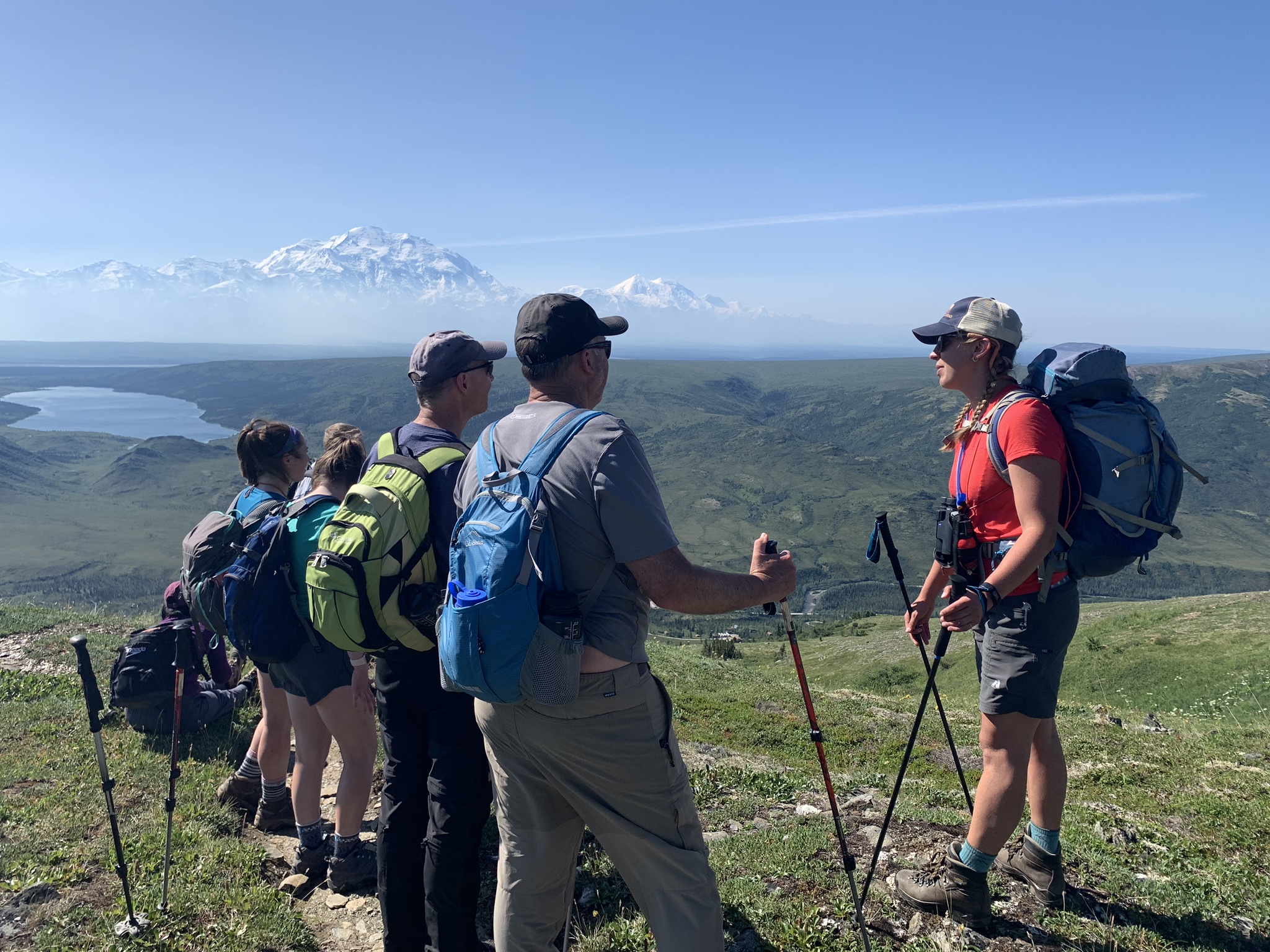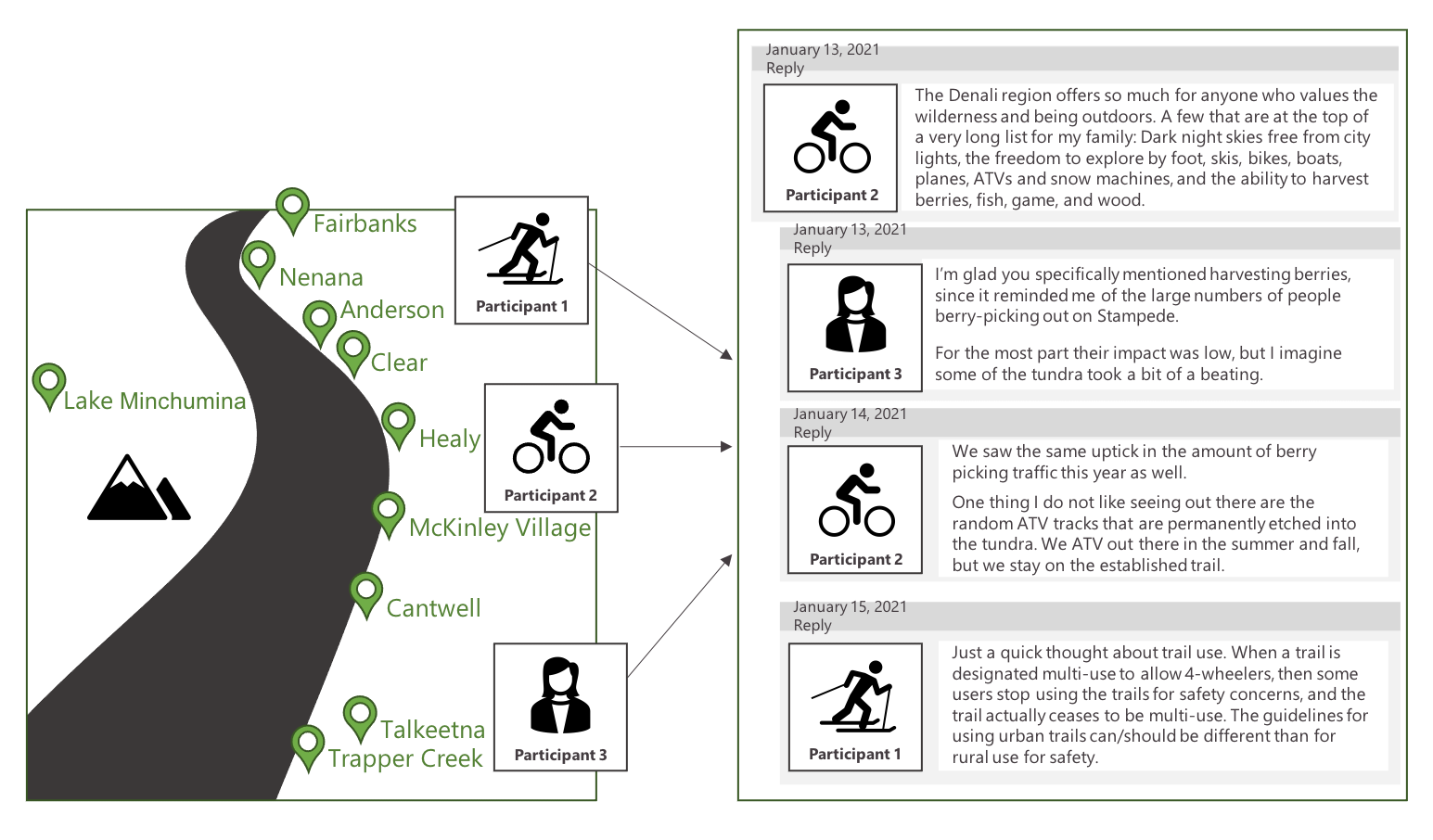


The purpose of community deliberation is to facilitate the process of social learning for residents about protected area management through stakeholder-driven discussions. Social learning is the change in understanding that occurs amongst individuals and groups through social interactions. A number of participatory approaches can be taken to facilitate social learning; we used community deliberation through an online discussion forum. The online discussion forum encompassed a four-week activity that residents participated in asynchronously. Residents were given a new topic prompt to address weekly and were encouraged to focus on responding to comments left by fellow residents. Weekly summaries were generated and feedback was also elicited to ensure the summaries accurately reflected residents’ deliberations. Over 400 responses and comments were posted by 37 residents on the discussion board throughout the four-week period. The last prompt asked residents what they had learned from participating in the forum, followed by a survey questionnaire administered online to measure other shifts in values, perceptions, or behaviors as a result of participation.
Previous work based on relationship building in the area was important for participation, especially the listening sessions and establishing local partnerships. Residents were compensated for their time, positioned as experts who were asked to demonstrate their local knowledge, and organized into three smaller discussion groups to encourage personalized interactions. Additionally, the research team asked for feedback on the interpretation of findings to increase ownership of the project.
Local residents enjoyed engaging in the online discussion and most appreciated collectively learning more about the landscape and protected area management. The positive attitude of the research team supported the learning process by building an appreciative dialogue of places in the Denali region. Maintaining flexibility in the research approach was also important to support participation for a broader array of residents within a rural landscape. For example, some people chose to engage anonymously to mitigate risk, while others shared their name and appreciated that they knew some of the people in their groups. Focus groups were held at the beginning of the forum to provide personalized guidance on the purpose of the forum to get things started, followed by the asynchronous discussion. Some of the participants expressed interest in having repeated meetings in addition to the online discussion component. Overall, we suggest that a mixture of online, in-person, and hybrid engagement strategies work best to capture the range of preferences for participation.